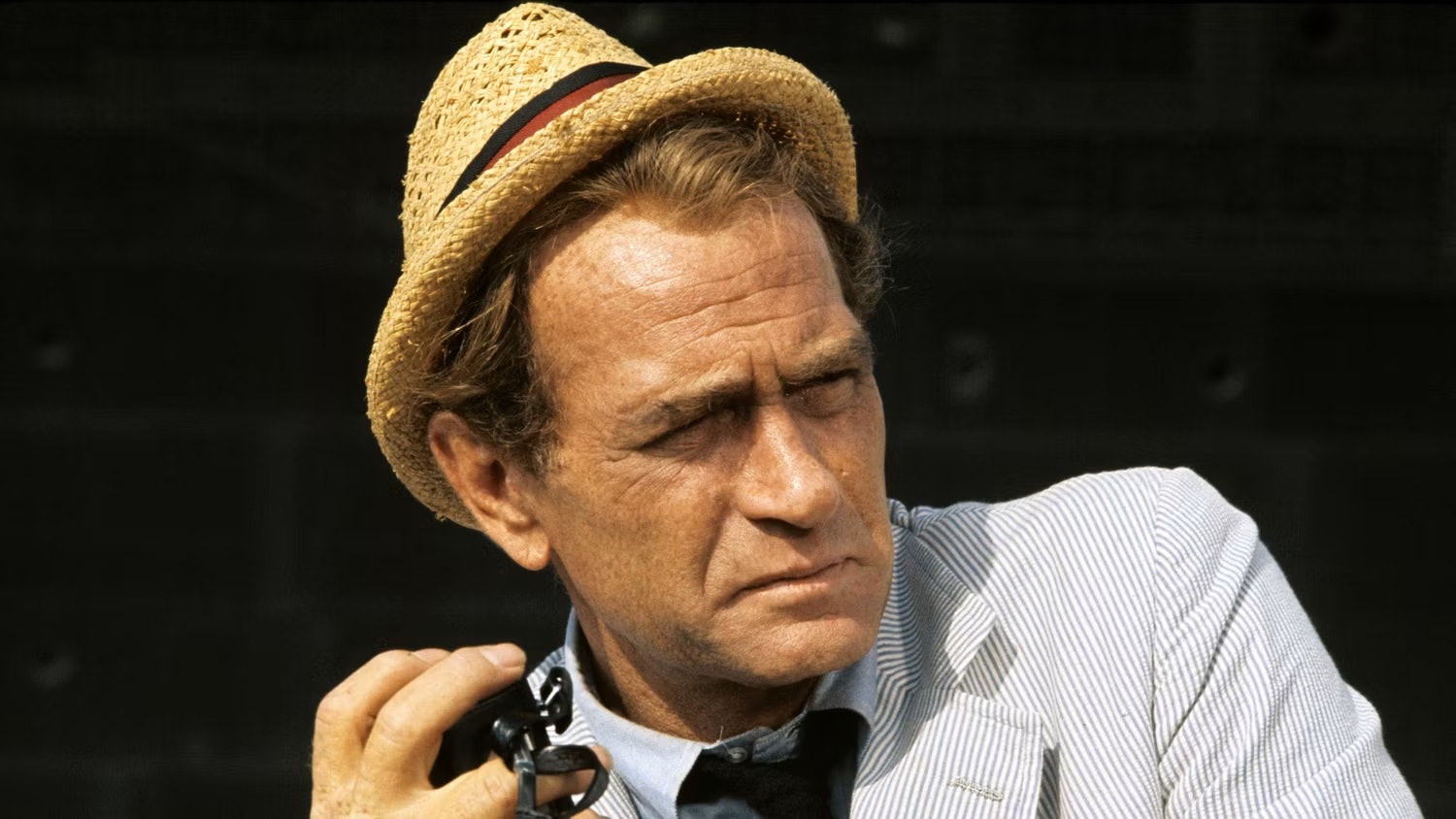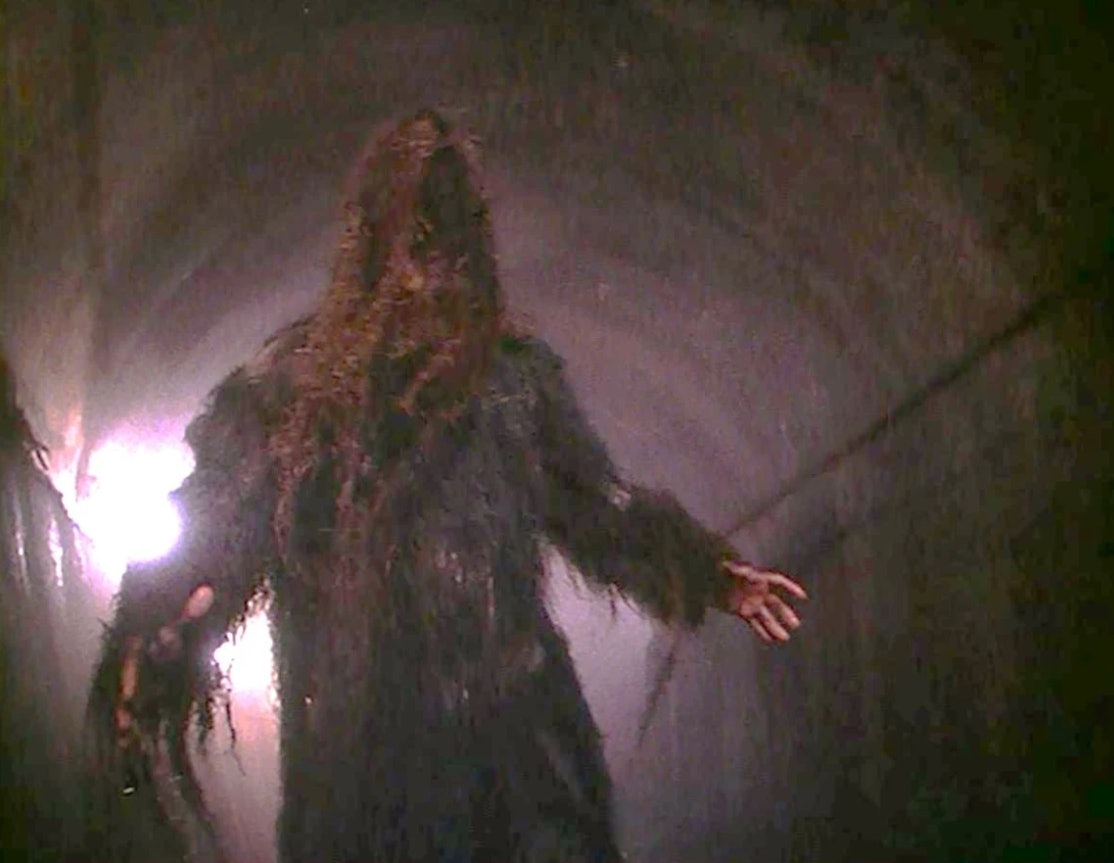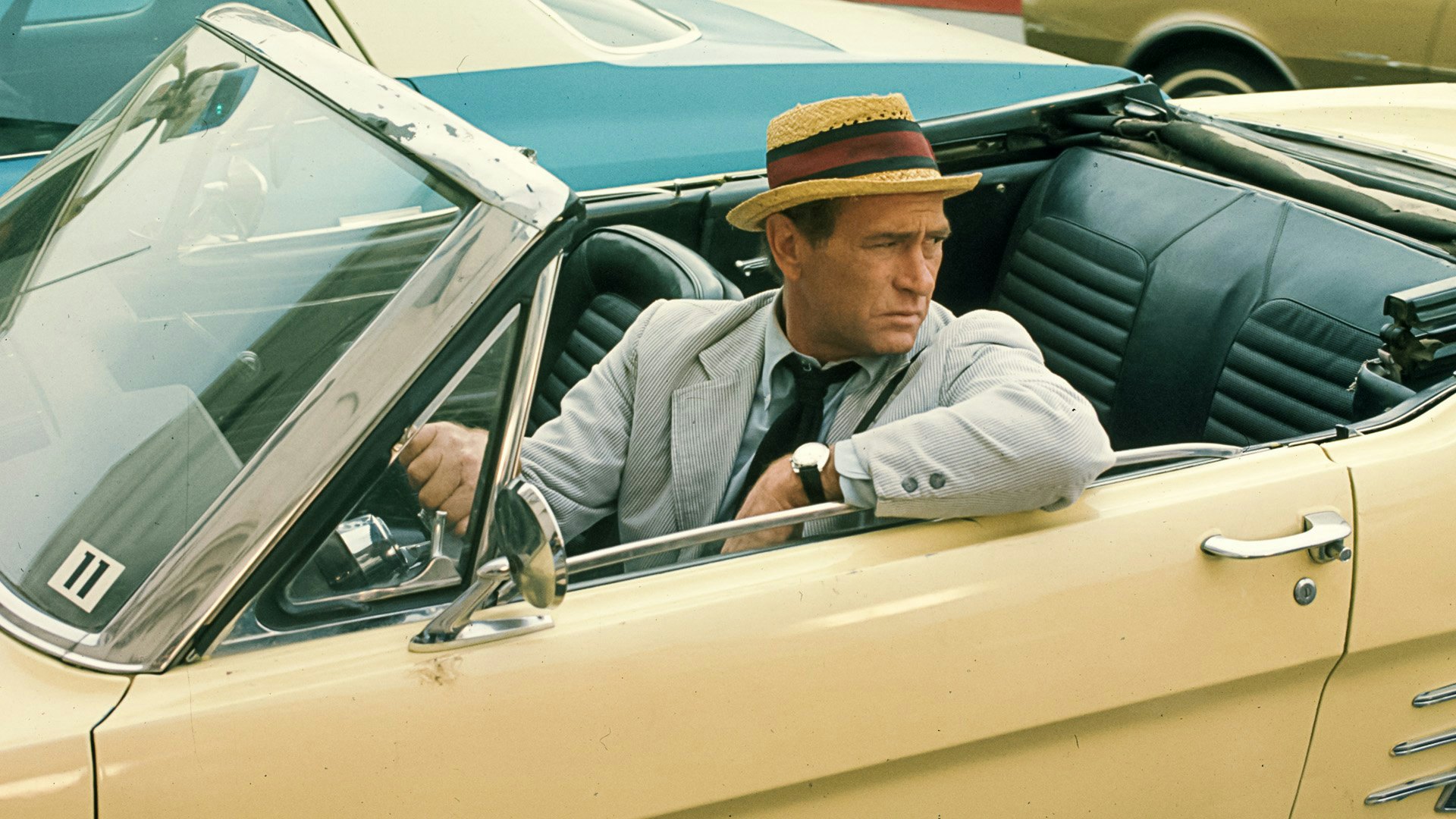
It’s rare for a show to be both influential and forgotten. Star Trek may have struggled in its time, but everyone is at least passingly familiar with its booming multimedia empire today. Much less well-known, despite its knock-on effect on genre television, is Kolchak: The Night Stalker. Most famously a major influence on X-Files creator Chris Carter, Kolchak has its fans, but struggled to elevate itself amid a scattered broadcast history.
Starring Darren McGavin as oddball investigative reporter Carl Kolchak, the franchise began life as an unpublished novel that spawned a 1972 TV movie about hunting down a Las Vegas vampire. When The Night Stalker became, according to Variety, the most viewed made-for-TV movie to date, it led to a sequel about another monster, which in turn gave us a TV show that aired its first episode 50 years ago and died an inglorious death just months later.
While that first film was about as serious as a story about a murderous bloodsucker can be, the TV show emphasized black humor and throwaway witticisms while relocating Kolchak to Chicago. There, his range of foes included aliens, a ghost, a zombie, an android, a witch, a succubus, and, of course, Helen of Troy. Every week, Kolchak would investigate a bloody murder, insist it had a supernatural explanation, dismiss the colleagues and cops who called him ridiculous, track down proof and puzzle out the monster’s weakness, then defeat the baddie, only to watch the truth get suppressed by the powers that be. Sound familiar?
It was a simple but effective format, as demonstrated in the debut episode where Kolchak tangles with Jack the Ripper. Between his mile-a-minute mouth, his dogged persistence, and his bravery in the face of his own terror, it’s easy to root for Kolchak, no matter how questionable his methods may get, and modern viewers should feel comfortable hopping right in.
Funny and lurid, Kolchak feels like a bridge between the fantastical premises of old sci-fi pulp like The Twilight Zone and The Outer Limits, and more modern fare like The X-Files, Supernatural, and other series that ground even their most absurd monsters in mundane reality. It creaks with age in places — the action is often laughable, Kolchak casually opines on the weight and eating habits of a female colleague, and Jack the Ripper is difficult to take seriously given that he struts around like Tuxedo Mask — but the core genre fun, aided by McGavin’s manic energy, remains.

Kolchak’s adventures are also refreshingly brisk, often to the point of absurdity. Despite his press card, Kolchak isn’t terribly interested in how Jack the Ripper survived for over a century, or the implications of his continued existence. Once he determines the Ripper’s only fear is electricity, the killer’s high-voltage end is inevitable. This can be fun or silly, depending on your mood, but either way, you certainly don’t have to worry about Kolchak grappling with any Surf Draculas.
Despite the success of the TV films, Kolchak struggled to rise above mediocre ratings and was euthanized after 20 episodes. Reruns later proved somewhat successful, as did additional movies cobbled into existence by mashing episodes together and throwing in some additional narration. As time passed and the series found some success on home media, there appeared to be enough nostalgia to attempt a 2005 reboot, a completely forgotten piece of media that dropped the humor, gave Kolchak a gritty backstory, and was mercy-killed after just six forgettable episodes.
Kolchak has continued to sporadically reappear in novel and comic book format, and there was briefly talk of Johnny Depp starring in an Edgar Wright-directed film, but while nerds continue to advocate for his reinstatement to television, Kolchak may be as dead as the werewolf he helped oust from a singles’ cruise. And, despite some fan rabidity, that may be for the best.

Kolchak feels like a distinct product of ‘70s cynicism, from its sleazier touches to the fact that our hero is armed only with his camera and his wits rather than being a cop or federal agent who can gun down any troublesome critter. The police of Kolchak’s world tend towards incompetent goonery, a portrayal that would’ve been impossible to pull off 20 years prior and would prove quite challenging today, to say nothing of his chosen profession. With most newspapers gutted, it would be difficult to buy Kolchak finding the time to investigate zombie attacks in between compiling Reddit content, and the series just wouldn’t feel the same if he ditched the office to update his Substack from a Starbucks.
What isn’t lost to time is Kolchak’s outsized influence and talent roster. There’s the aforementioned X-Files connection; one episode about a prehistoric ape-man going on a rampage even feels like a precursor to a Season 1 Mulder and Scully adventure. Gary Gygax cited the show as an influence on his monsters, and another episode bears an uncanny resemblance to the plot of The Omen. Legendary genre writer Richard Matheson wrote both movies, Sopranos creator David Chase cut his teeth as the show’s story editor, and Bob Gale and Robert Zemeckis wrote an episode about a headless motorcycle rider years Marty McFly went back to the future. If you were aware of Kolchak, odds are you accomplished something notable in Hollywood.
All of this makes Kolchak intriguing to watch today, despite the fact its hero seems destined to be rejected by the universe. Kolchak asks, “How can you explain it?” after slaying the Ripper for good, but doesn’t get an answer. But sometimes, a good story doesn’t need a good explanation, especially if it involves a werewolf terrorizing a cruise ship.







